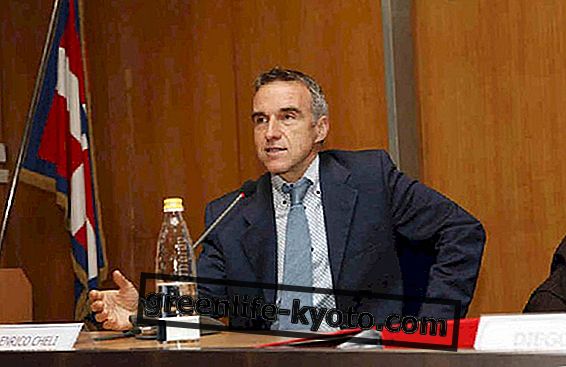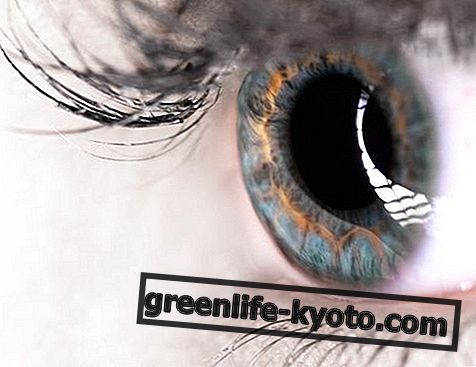
Enrico Cheli, psychotherapist psychologist, sociologist and university professor, has long been committed to combining science, ethics and spirituality and promoting a culture of awareness, peace and the environment. He is considered one of the leading experts in emerging holistic culture and methods for personal and spiritual growth. He has been practicing yoga, tantra, meditation and various other methods of awareness for decades. The Cultural Creatives. New people and new ideas for a better world is the title of the book that Enrico Cheli wrote with Nitamo Montecucco and Ervin Laszlo, a text focused on the first European research on cultural creatives, individuals oriented towards a more ethical economy, a development model environmentally sustainable, a healthier and more natural lifestyle. Valentina Aversano interviewed him for us.
Attention to the environment, world peace, social and economic injustice: how has our society changed? How are cultural creatives born?
Cultural creatives are children of our time, people seriously worried about the state of the environment, world peace, climate change, social and economic injustice and desirous of a more ethical economy, an eco-sustainable development model, one healthier and more natural lifestyle, higher individual and collective awareness. The term "cultural creatives" - which means "creators of a new culture" - is due to the American sociologist Paul Ray who, since the mid-1980s, has carried out extensive research on the new values and lifestyles of Americans, identifying this a new category of people, which in the 1980s was a few percentage points, had grown to 25% of the adult population in the 1990s and reached 35% in 2008. The research carried out in Italy and directed by me has found an identical percentage, equal to 35% of the adult population.
What is the identikit of cultural creatives? How do green cultural creatives differ from inner cultural creatives?
Despite being made up of diversified individuals and social groups, this cultural avant-garde shares a substantial refusal of the world view typical of the dominant culture, and is aggregated around some common values such as: ecological sensitivity; attention to peace and the quality of interpersonal relationships; interest in personal growth and spiritual practice; disinterest in the exhibition of the social position; equal rights between males and females; social conscience; trust and hope in the possibility of a better evolution of the individual and the community. Moreover, cultural creatives have a tendency to distance themselves from hedonism, materialism, cynicism while giving much weight to the values of authenticity and integrity.
For this reason, many disdain business culture, the media, consumerism. They are disenchanted with the idea of "having more things", while placing great emphasis on having "new and unique experiences" and representing the central market for alternative therapies and medicines, natural foods, psychotherapy, courses and seminars. personal growth, new forms of spirituality. They also prefer critical consumption and are oriented towards the purchase and use of cultural products rather than materials, producing themselves culture, in the sense that they like more than the average to be involved in the arts as amateurs or authors, to write books and articles and to participate at cultural meetings and seminars. They pay much attention to themselves and to the health of their bodies and spend time and money on wellness practices.
With regard to the second part of the question, the research carried out has indeed found in cultural creatives two distinct but complementary components: one, which we have called green cultural creatives, more oriented towards movements, political action, collective awareness; another, that we have defined interior cultural creatives ( core CC) that pursues similar goals but with a different orientation, more focused on the individual level, that is on the improvement of oneself and of the small world around oneself, changing one's behaviors and styles of life and then influencing those of the surrounding people. This second component is characterized by a more marked spiritual sensitivity and a stronger commitment in terms of personal growth, while the first is more involved on the front of political and socio-cultural activism.
Research on cultural creatives was born in America: are there points of contact between American and Italian society?
Although the social, cultural and political situation of these two countries is not exactly similar, we found in the Italian survey marked analogies with the American ones, a sign that cultural creatives represent not a local phenomenon but a global movement. In the first place, the values examined in the two countries collect substantially equivalent subscriptions: in particular, the range of CC covers 35% of the population both in the USA and in Italy. In both countries, women dominate among men (54% versus 46% in the US, 57% versus 43% in Italy). On the other hand, there is a certain diversity with regard to age: in the USA the CCs are younger than the average, with a peak in the 18-29 age group, while in Italy 55% of them are over 40 and the peak ( 28.87%) is in the 40-49 age group. Also with regard to the level of education the data are similar: in both countries the CCs are more educated than the average. Another common element concerns the coherence between values and behaviors, which is significantly greater in the CC than in the non-CC.
Also with regards to politics, the data collected are, on the whole, similar: in both countries we see the decline of the traditional categories of "left", "right" and "center" and the increasing incapacity of traditional politics to respond appropriately to the real needs of people. However, there is at least one important point of diversity: while in fact the new progressives (and therefore the cultural creatives) have already succeeded in the USA to concretely influence the political system leading to the victory of an outsider like Barack Obama, in Italy there are not for the moment no signs of any kind that suggest something similar, even if on a smaller scale. This depends on various factors, not least the different functioning of electoral processes, which for now makes it very difficult - if not impossible - for new and independent political figures to emerge (even only partially) from the party secretariats and the groups holding the power.
Italian research outlines an emerging cultural paradigm: how does this clash with the values of the dominant paradigm? What is the role of the holistic vision?
Olos in Greek means "whole", "everything" and holism is a global and systemic way of seeing reality, which focuses on points of encounter rather than confrontations, similarities rather than differences, interconnections rather than separations. Holism seeks to correct the mechanistic and reductionist drift that has greatly contributed to the affirmation of a "soulless" science and of an "unethical" technology and economy, jointly responsible for the devastation of ecosystems, weapons of mass destruction, of water pollution, of food, of air, of the dispersion of radioactive waste, of the wild exploitation of natural resources and of other very serious problems of the present age. Not only the environment but also the human being has been fragmented and reduced to a machine, with a growing sense of separation from himself, from others and from nature, and with consequent serious psychic, existential, social and spiritual illnesses. Malaise that cannot be "treated" in a fragmentary way, as the dominant science and culture claim to do, "entrusting the body to the doctors, the mind to the psychologists and the soul to religions, as if they were separate entities and not of interconnected aspects of a single system with a unity of consciousness.
Rather a holistic approach is needed, which highlights the interrelations between the various causal factors at play and the systemic repercussions that given beliefs and specific actions - individual or collective - can have on the individual, on peoples and on the entire planet. For example, the holistic view that what happens in different areas of the planet - from the deforestation of the Amazon to the melting of polar ice, from the wars in the Middle East to the conflicts in Afghanistan - can have significant repercussions in other areas and areas. Similarly, the concept of "quality of life" is considered holistic, which considers well-being not dependent only on having economic benefits but on the balanced satisfaction of different human - material but also social, emotional, existential and spiritual needs. Many alternative medicines and psychosomatic therapies are also holistic, according to which health also depends on the mental, emotional, existential and conscience state of the individual.
In the twentieth century, many scientists have begun to question the assumptions of mechanism and scientific materialism and there have been important contributions in many branches of science towards a holistic paradigm: from systems theory to Gestalt psychology, from cybernetics to emergentism in biology, just to name a few. Unfortunately this way of looking at things continues to be a minority in Western civilization, where the tendency towards sectorialisation and fragmentation still predominates not only in science but also in other spheres of social life - from politics to religions, from education to interpersonal relationships. Neither at school nor in universities is taught to study reality in a holistic way, to seek not only the differences but also the similarities and connections between the multiple levels and processes. Hardly anyone teaches us to take care of the human being, nature or society as a whole, nor to educate human beings about unity.
It is therefore essential to pay greater attention to the aspects of systemic interconnection: our planet must be seen as a single large system, where what happens in a certain geographical area is not separated and isolated from the rest of the planet but can have serious repercussions on it . Likewise, even the human being must be seen as an interdependent system, in which the body is not separated from the mind, an organ is not isolated from others and from the global system, consciousness and spirit are reflected on the emotional, mental and even material reality . Only through such a process can a change be made in the current negative trend, opening the doors to a more conscious, harmonious and sustainable future.
Research shows a strong link between personal growth and spirituality: is it possible to change the world starting from oneself?
Cultural creatives in many ways represent an evolution of the counterculture and youth revolution of the 60s and 70s, and many of them believe that one can change the world starting from oneself: committing oneself to develop one's awareness and potential not it is therefore only an individual act but also a way to contribute to the improvement of the planet Earth. Some pursue this objective by following psychological and sociological methods, while others have a more spiritual orientation, although not in the traditional sense, but rather considering that the divinity must be sought within oneself and that the more the inner veils are removed and the more one's potential is developed., the closer you get to it. As I have highlighted better in the book Paths of awareness (Xenia edizioni), these are different facets of a single large evolutionary phenomenon that embraces the entire Western civilization and is spreading even among the upper-middle classes of the so-called "second world ”, From India to China, from Brazil to Argentina.
Whatever the motivations that drive towards inner knowledge and self-realization, it is of the utmost importance that every person knows that this path is possible and that there are now widely tested methods and techniques that can help those who wish to overcome their limits, to dissolve their fears, to rediscover natural vitality and sensitivity, to express their feelings spontaneously and to find their own way in life. In recent years many centers and associations have also been born in Italy that deal specifically with these issues, offering courses, seminars, conferences ranging from psychology to yoga, from meditation to artistic expression, from interpersonal relationships to Zen. I would like to highlight the Holiversity Foundation, which I have the honor of presiding over and which represents one of the most highly qualified structures in this field.












